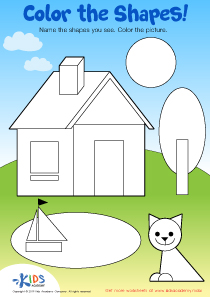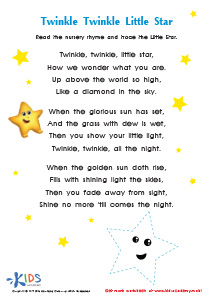Normal Shapes Quizzes for 5-Year-Olds
1 results
1 filtered results
Clear all filters1 filtered results
-
From - To
Introducing our captivating "Normal Shapes for 5-Year-Olds" interactive assessment quizzes! Crafted specifically for young learners, these quizzes are designed to check and enhance your child's understanding of basic shapes in a fun and engaging way. As children navigate through the questions, immediate feedback is provided, encouraging learning and improvement. This Normal Shapes quiz series offers a perfect blend of education and entertainment, ensuring your 5-year-old gains confidence in their shape recognition skills while enjoying every step of the learning journey. Join us in making learning an adventure with our Normal Shapes quizzes for 5-Year-Olds!
In the world of early childhood education, harnessing the power of interactive learning tools presents a golden opportunity to engage young minds in a way that is both fun and educational. Among these tools, normal interactive quizzes on shapes stand out as a remarkable resource, especially crafted for 5-year-olds. These quizzes are not just games; they are stepping stones towards a deeper understanding of geometry, spatial reasoning, and the world around us.
Normal shapes for 5-year-olds might seem like a simplistic concept at first glance. After all, shapes are one of the first things children learn about in their early years. However, the transition from recognizing shapes to understanding their properties, differences, and applications in real life is a significant leap in cognitive development. This is where our normal interactive quizzes come into play, offering a structured yet engaging approach to mastering the basics of shapes.
The utility of these quizzes lies in their interactive nature. Children learn best when they are actively involved in the learning process, rather than passively receiving information. By participating in quizzes, 5-year-olds can engage with the material on a deeper level. They can see the immediate results of their choices, which helps reinforce their learning and encourages them to try again if they make mistakes. This trial-and-error process is crucial for developing problem-solving skills and resilience in the face of challenges.
Moreover, these quizzes are designed with the developmental needs of 5-year-olds in mind. They feature age-appropriate questions that are neither too easy nor too difficult, striking the perfect balance to keep children challenged without causing frustration. The quizzes also incorporate colorful visuals and interactive elements that appeal to young learners, making the learning process enjoyable and captivating.
The content of our normal shapes quizzes is carefully curated to align with educational standards, ensuring that children are learning concepts that are relevant to their academic journey. By familiarizing themselves with basic geometric shapes, children can build a solid foundation that will support their learning in more advanced topics in the future. Understanding shapes is not just about geometry; it also enhances spatial awareness, pattern recognition, and even mathematical reasoning.
Furthermore, these quizzes offer a versatile learning tool that can be used in various settings, whether in the classroom or at home. Teachers can integrate them into their lesson plans as a fun activity to break up the routine or as a tool for assessing students' understanding of the topic. Parents can use these quizzes to supplement their child's learning at home, turning screen time into an educational experience.
In conclusion, our normal interactive quizzes on shapes are invaluable resources for 5-year-olds in their educational journey. They combine the fun of interactive games with the rigor of educational content, providing a balanced approach to learning that caters to the needs of young children. By engaging with these quizzes, children can enhance their understanding of shapes, setting a strong foundation for their future studies in geometry and beyond. In doing so, they not only learn about shapes but also develop essential cognitive skills that will serve them well throughout their academic careers and life.













